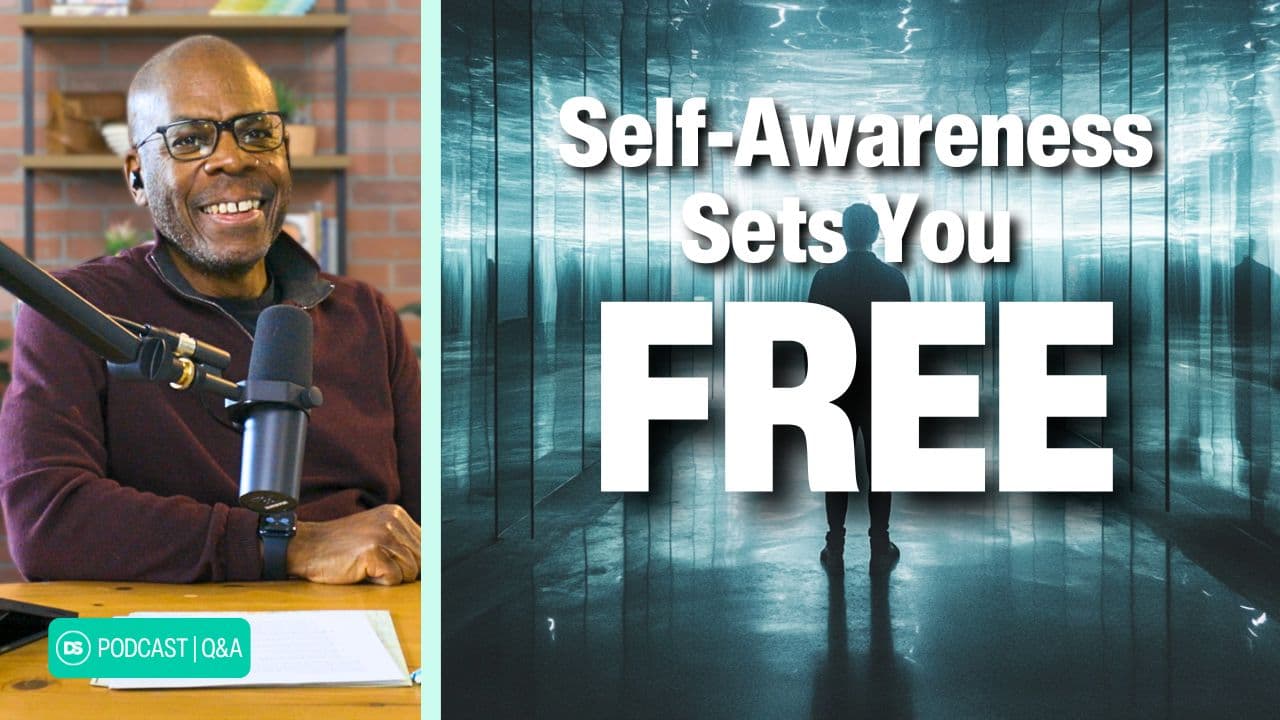When I felt secure, I said, “I will never be shaken.”
Psalm 30:6 NIV
Change has as much to do with unlearning as learning.
Unlearning insecure relationship building and leadership at home, work or school is among the most difficult and important changes one can make. It has been and continues to be my most persistent challenge.
My hope in writing is to convince you to join our team at Deep Spirituality on a journey to understand and quiet what my college friends and I used to refer to as our “raging insecurities.”
In my experience, most of our avoidable life and relationship problems stem from issues of insecurity. We don’t know who we are, why we are here, and are uncertain whether anyone can love us.
Christians can be deceived and think they are immune to the insidious impact of insecurity, but I Corinthians 8:1 teaches something different. When we are insecure, we limit the scriptures to the intellectual and often, with distancing intentionality, build emotionally superficial rather than deep relationships.
Now regarding your question about food that has been offered to idols. Yes, we know that “we all have knowledge” about this issue. But while knowledge makes us feel important, it is love that strengthens the church.
1 Corinthians 8:1 NLT
We become satisfied with, perhaps even prefer, emotionally disconnected or what I call “religious relationships” – those focused more on people than God, behavior than heart, and appearances than attachments. Dangerously, over time, these religious relationships become more of an Academy Award-winning performance than an intimate friendship with God and people.
Oh, for the days when I was in my prime, when God’s intimate friendship blessed my house,
Job 29:4 NIV
Whether we are religious or not, insecurity has an emotionally dulling or inhibiting effect on everything we do and, especially, everyone we know. As I Corinthians 8:1 implies, our pursuit of importance in the eyes of people is a decision that undermines our capacity to love them, and this choice weakens both the individual and his or her church.
Communities like this bite and devour; they destroy each other, because of an unwillingness to look below the surface and deal with the deep existential threat of insecurity. This destructive superficiality erodes the health of any organization, especially the church, as the relationships first decline spiritually, then emotionally, which usually leads them to become intellectually contentious.
Galatians 5:13-15 (NIV) describes this downward spiral of relationship decay, which ends with the physical decline of division where the dogmatic split churches, the disillusioned leave them, and the unbelieving avoid them.
13 You, my brothers and sisters, were called to be free. But do not use your freedom to indulge the flesh; rather, serve one another humbly in love. 14 For the entire law is fulfilled in keeping this one command: “Love your neighbor as yourself.” 15 If you bite and devour each other, watch out or you will be destroyed by each other.
Galatians 5:13–15 NIV
At this point, the negative impact of insecurity on both the individual and organization should be obvious. The inescapable truth we must all face is that the long term viability and success of every human entity will be determined by their capacity to build a healthy relationship culture, one with intimate rather than insecure attachments.
Creating this type of culture poses a spiritual challenge for everyone. Since most of us begin life building insecure relationships, there must at some point be a transformation from insecure to intimate relationship building. For this to occur, each of us must turn to God to answer those existential questions – who are we, why are we here, and are we worthy of being loved?
Explore me, O God, and know the real me. Dig deeply and discover who I am. Put me to the test and watch how I handle the strain.
Psalm 139:23 Voice
When we discover who we are, we find our identity. When we discover why we are here, we find our purpose. When we discover we are worthy of being loved, we experience intimacy.
Discoveries of identity and purpose come from God, as well as the experience of the unmatched unconditional love, of which only He is capable. These anchor us in good times as well as bad, when the unpredictable and uncontrollable storms of life arrive, always allowing us to say and sing with the Psalmist in Psalm 30:6, “When I felt secure, I said, ‘I will never be shaken.’”
Sing the praises of the LORD, you his faithful people; praise his holy name. [5] For his anger lasts only a moment, but his favor lasts a lifetime; weeping may stay for the night, but rejoicing comes in the morning. [6] When I felt secure, I said, “I will never be shaken.” [7] LORD, when you favored me, you made my royal mountain stand firm; but when you hid your face, I was dismayed.
Psalm 30:4-7 NIV
For Christians all of this should sound reasonable, if not exciting. For those who consider themselves spiritual but not church-going, the fundamental question is, “How do we inspire security and closeness in a secular or non-church organization?” The answer is quite simple: we must consider, perhaps for the first time in our lives, that there is a purpose and necessity for society to have healthy and inspiring churches, those that build the right way, because only God can help us grow from insecure to secure relationships builders.
My own life began on a secular course and, even after becoming a Christian, insecurity was a spiritual topic about which I learned little in my first decade of consistently attending church. There was extensive teaching on a variety of Biblical subjects from an intellectual and doctrinal perspective, but rarely was there the level of transparency necessary to address subjects of emotional depth and importance like insecurity.
While some will consider this a critique, it is in my view the healthy spiritual perspective that comes from walking with God through failure and success, as well as heartache and happiness. This is the spiritual journey necessary to know God better and help us move beyond the past to become who and what we need to be for the future of God’s Kingdom. It is a vision which, if fulfilled, will help the insecure non-believer find security in God.
I keep asking that the God of our Lord Jesus Christ, the glorious Father, may give you the Spirit of wisdom and revelation, so that you may know him better.
Ephesians 1:17 NIV
I am more explorer than expert, learning and discovering along with our team at Deep Spirituality in the hope that we can provide articles, podcasts, and studies to encourage you in your personal journey to know God.
In this series on insecurity, if we can help you avoid some of the painful lessons we have had to endure because of our dysfunctional insecurities, and you are able to build spiritual relationships of great depth and intimacy, then we will have fulfilled our mission to inspire people to walk with God. So find a friend or convince your house church to tackle this vital area of spiritual health, making use of the coming resources, so that together we can transform our lives and change the world.
Explore more:
As the editor in chief for Deep Spirituality, Russ Ewell writes, teaches, and innovates with his eyes on the future. His teaching is rooted in providing hope for those turned off by tradition and infused with vision for building a transformative church. His passion to inspire even the most skeptical to view God through fresh eyes can be found in his book, He's Not Who You Think He Is: Dropping Your Assumptions and Discovering God for Yourself.
As the editor in chief for Deep Spirituality, Russ Ewell writes, teaches, and innovates with his eyes on the future. His teaching is rooted in providing hope for those turned off by tradition and infused with vision for building a transformative church. His passion to inspire even the most skeptical to view God through fresh eyes can be found in his book, He's Not Who You Think He Is: Dropping Your Assumptions and Discovering God for Yourself.





